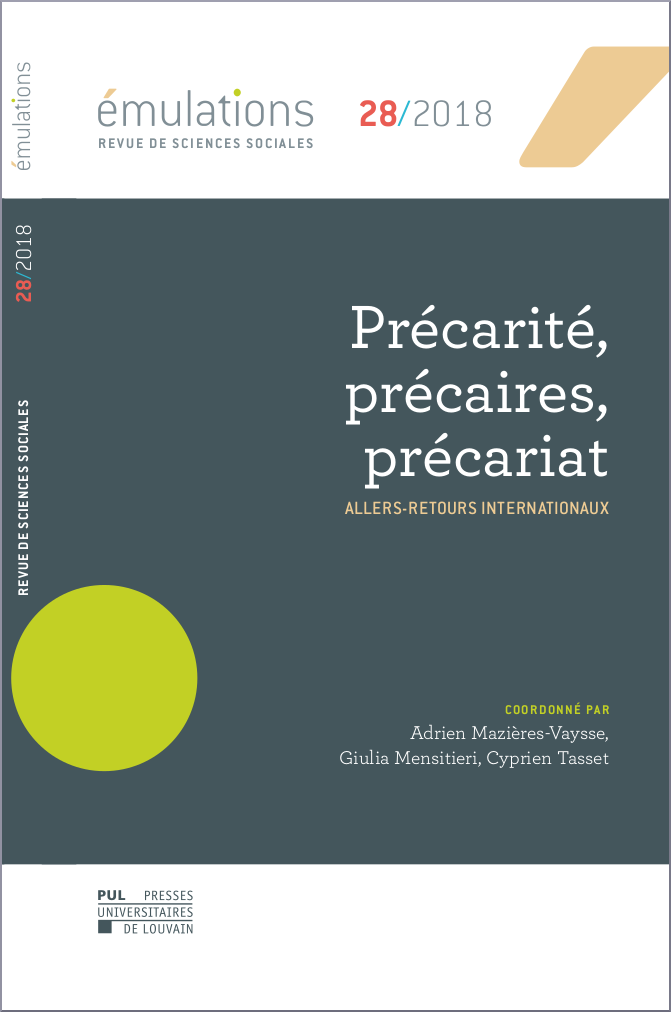La « précarité » au prisme de l’exclusion
Un schème dépolitisant ?
DOI:
https://doi.org/10.14428/emulations.028.06Keywords:
Precarity, Social critique, Exclusion, Exploitation, Organicism, NormsAbstract
This article investigates the concept of precarity, problematized through the integration/exclusion paradigm, and its critical potential. Developed in the 1980s, this reading mirrored the sharp rise in unemployment and the emergence of a new poverty, of which we were beginning to become aware. It now goes beyond the concern of the 1970s, which focused on the rise of precarious forms of employment. The social sciences are developing a particular reading grid related to social integration and exclusion, which today has become the horizon of a general agreement on precarity. Based on sociogenetic works, this article addresses the concept of precarity itself, as a concept capable of capturing a reality (diagnostic concept) as well as categorizing the social world (ideological concept). It is interested in the theoretical presuppositions and the political and practical effects of this reading, which creates categories of “precarious” or “excluded” individuals, or individuals undergoing a process of exclusion.
Downloads
Published
How to Cite
Issue
Section
License
Copyright (c) 2018 Émulations - Revue de sciences sociales

This work is licensed under a Creative Commons Attribution 4.0 International License.




.png)





